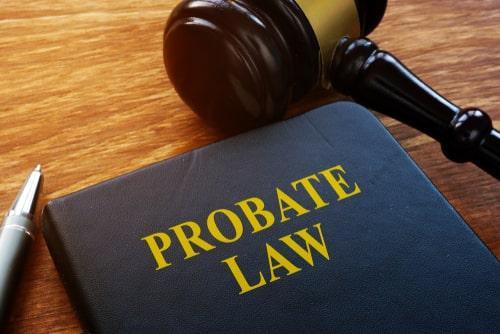Three Estate Planning Strategies to Avoid Probate in Illinois
 With just one glance at the hundreds of statutory provisions in the Illinois Probate Act, you can tell that the estate administration process can be overwhelming and complex. Unfortunately, it is usually necessary for most estates to go through probate. The timeline varies widely based upon the circumstances of the case, but the proceedings can take several months to more than a year. It can be disheartening to think about the time and cost involved, and you may be wondering if there is anything you can do to avoid the probate process. The good news is that there are multiple strategies for sidestepping a drawn-out court case, and one or more of them are often suitable to achieve many of your estate planning goals.
With just one glance at the hundreds of statutory provisions in the Illinois Probate Act, you can tell that the estate administration process can be overwhelming and complex. Unfortunately, it is usually necessary for most estates to go through probate. The timeline varies widely based upon the circumstances of the case, but the proceedings can take several months to more than a year. It can be disheartening to think about the time and cost involved, and you may be wondering if there is anything you can do to avoid the probate process. The good news is that there are multiple strategies for sidestepping a drawn-out court case, and one or more of them are often suitable to achieve many of your estate planning goals.
1. Joint Ownership of Certain Assets
For any real estate you currently own jointly, as well as property you purchase with someone in the future, you can title it as “joint tenants with right of survivorship” to avoid the probate process. It is also possible for joint tenants to have survivorship interests on a vehicle registered in Illinois. When this language appears on the deed or Certificate of Title, your interest in the asset passes to the other joint owners by operation of law when you die–not through the probate process.
2. Beneficiary Designations
Another way to pass on assets outside of probate is through beneficiary designations, which will also lead to an automatic transfer of ownership upon your death. Typically, you would include a beneficiary for a life insurance policy, as well as some bank and investment accounts. You can also name a beneficiary on an Illinois vehicle Certificate of Title.
3. Revocable Trust With a Pour-Over Will
If your estate has a high net worth, you own complicated assets, or you have concerns about beneficiaries, you might consider creating a revocable living trust. You can appoint yourself as trustee during your lifetime, and then fund it by titling your personal and real property in the name of the trust. You retain decision-making control to manage trust assets according to your needs.
At the same time that you create the trust, you can also execute a “pour-over” will. It is often the case that a person will forget to title assets in the name of the trust, so he or she would own them individually upon death. To avoid this scenario–and going through the probate process–the pour-over will provides for the deposit of all individually held assets into the trust at your passing.
Contact a DuPage County, IL Estate Planning Attorney
One or more of these options may serve your needs when avoiding probate is a top priority, but it is important to work with knowledgeable legal counsel regarding the specific requirements. Seemingly minor mistakes can derail your intentions, so trust our team at A. Traub & Associates to guide you in your decision-making and document preparation. To learn more, please call 630-426-0196 to set up a consultation with a skilled Lombard estate planning lawyer. We can provide additional details after reviewing your circumstances and assessing your goals.
Source:
https://www.ilga.gov/legislation/ilcs/ilcs3.asp?ActID=2104&ChapterID=6















